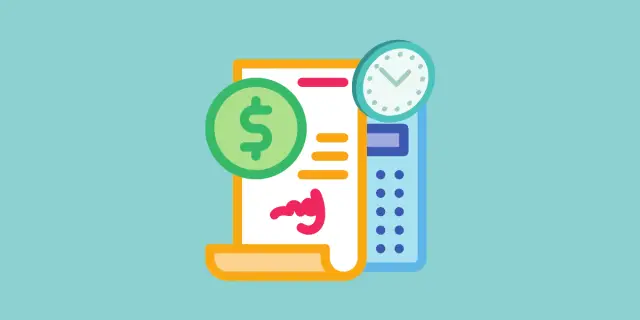What is the service bonus and who is entitled to it?
The service bonus is a mandatory social benefit that recognizes the employee's contribution to the employer's economic growth. This obligation is enshrined in Article 306 of the Colombian Labor Code. It is paid at two key points during the year: half in June and half in December. Although it resembles a semi-annual bonus, it is a legal obligation for all employers with employees under employment contracts.
This benefit applies to all individuals under an individual employment contract , including full-time and part-time workers, as well as domestic workers such as nannies, gardeners, and family service drivers, among others. Even if the employee did not work the full six months, they are entitled to receive a proportional share for the time worked.
They are not entitled to the premium:
Contractors who provide services through civil or commercial contracts.
Informal workers or those without a legal employment relationship.
Independent entrepreneurs.
When is the service bonus paid in June?
According to Colombian labor law, the June bonus payment must be made no later than June 30th of each year . This date is not optional; it represents a legal deadline for employers to comply with the obligation.
It is important for both employers and employees to be aware of this deadline, as failure to comply can result in administrative sanctions and even labor lawsuits. The law does not allow for deferrals, so it is recommended to schedule payment in advance and keep a documented record of it.
📅 Deadline 2025: Monday, June 30
It should be noted that if the worker has not completed the full semester, he or she is entitled to a proportional bonus , calculated based on the days actually worked.
How is the service bonus calculated?
The calculation of the bonus is one of the aspects that generates the most doubts among employers and employees. By law, it corresponds to fifteen (15) days of salary for each semester worked . This includes the period from January 1st to June 30th, or from July 1st to December 31st, depending on the bonus payable.
The result represents the proportional amount that must be paid to the worker. If the worker has worked the entire semester, their base salary is used. If they have had variable income (such as commissions), an average is calculated.
Calculation example
Let's imagine a worker who earns $1,300,000 a month and has worked the entire semester. The calculation would be:
| Concept | Worth |
|---|---|
| Monthly salary | $1,300,000 |
| Days worked | 180 days |
| Calculation | (1,300,000 × 180 / 360) = $650,000 |
This worker should receive $650,000 as a service bonus in June .

Key aspects of premium payment
What does the base salary include?
For calculation purposes, base salary includes not only the basic salary but also other fixed and regular payments such as:
Commissions
Regular overtime
Night or Sunday surcharges
Transportation assistance (if applicable)
The latter is only included when the worker's salary does not exceed two legal monthly minimum wages in force .
Does the premium include transportation assistance?
Yes , as long as the worker is entitled to this benefit. That is, if their monthly salary is below the legal limit (approximately $2,600,000 in 2025), the transportation allowance is added to the base salary for the purpose of calculating the bonus. This increases the amount to be received, making it crucial for employees with incomes close to the minimum wage.
Consequences of non-payment
Failure to pay the premium within the established timeframe can have serious legal and financial consequences for the employer. These include:
Fines imposed by the Ministry of Labor.
Individual or collective labor claims.
Charges for compensation or additional financial penalties.
In the event of an inspection, the employer must provide evidence of timely and correct payment. Lack of documentation or delay can be construed as evasion of labor rights, which can lead to costly lawsuits.
Key points for employers and workers
For employers
Employers must be diligent in fulfilling this obligation. It is advisable to:
Use up-to-date and reliable payroll software.
Calculate the premium amount in advance to avoid delays.
Inform employees of the amount to be paid and provide physical or digital receipts.
For workers
It is vital that employees are informed about their rights. Some recommendations include:
Verify that the premium has been correctly settled.
Request proof of payment.
If you do not receive it, contact the Ministry of Labor or seek legal advice.
Recommended resources
🔗 Colombian Ministry of Labor : Official entity for complaints or inquiries.
📘 Substantive Labor Code : Article 306, which regulates the bonus.
🔢 Contabilizalo.com : Updated labor calculation tools.
Frequently Asked Questions (FAQ)
What happens if the employee resigns before June?
You are entitled to receive a bonus proportional to the time worked from January until your departure date. The employer is required to pay this bonus along with your final salary.
Can the bonus be paid in two installments in June?
No. The law requires that the first-semester premium be paid in a single installment, before June 30.
Does the service premium accrue interest if not paid on time?
It does not directly generate interest, but the employer may face penalties and fines for noncompliance, in addition to having to pay compensation.
Can I sue if I don't get paid my premium?
Yes. The worker can go to the Ministry of Labor or a labor court to claim payment, even years after the breach.
Do SENA apprentices receive a bonus?
No. Apprentices have an apprenticeship contract, not an employment contract, so they are not entitled to a bonus.
Guarantee your labor rights
Payment of the June service bonus in Colombia is a fundamental right that strengthens workers' economic security and promotes more equitable labor relations. Both employers and workers should be aware of their obligations and benefits to avoid conflicts and foster work environments based on mutual respect.
Preparing ahead of time, calculating correctly, and meeting legal deadlines is essential to maintaining a solid and compliant employment relationship. If you're an employer, review your payroll. If you're an employee, make sure you're receiving what you're owed.
